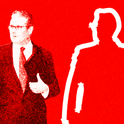Apart from those who become prime minister, not many chancellors fundamentally change the political weather. Rishi Sunak, who delivers his spring statement today, could still reach No 10 if Boris Johnson falls, and he might develop an innovative brand of conservatism if he does so, like John Major after Margaret Thatcher. But as chancellor he is increasingly clearly an adjunct of his prime minister and reflects Johnson’s policy tensions and contradictions, albeit without the over-the-top rhetoric.
Is Johnson a smaller- or larger-state conservative? He claims to be both at the same time, and so does his chancellor. The reality is that, partly from circumstance (Covid), and partly from choice (the health and social care levy), in Sunak’s two years as chancellor he has put taxes up and increased the state’s share of national income, while claiming to be Thatcherite and wanting lower taxes down the line.
Sunak’s last Budget trumpeted all the higher spending while ending with a Thatcherite riff on lower taxes. His recent Mais lecture, calling for “a new spirit of enterprise,” similarly praised big recent increases in state capital investment, and said the next phase of investment needed to come from the private sector, but had little by way of a route map for getting there.
Then comes Ukraine, where the direction from Johnson’s No 10 will now be towards higher public spending on defence—partly from obvious circumstance, but partly out of choice to project Brexit Britain as a continuing global power and European leader. Sunak’s spring statement today will do the same and the trade-offs won’t be clear, not least because he doesn’t yet have any idea what they will be.
It is hard for a chancellor to break free of their prime minister, even if they want to do so, because it is the PM who has the mandate and the public mission. Sometimes, as with Nigel Lawson to Margaret Thatcher in the mid-1980s, or Roy Jenkins to Harold Wilson in the late 1960s, the chancellor represents the courage of the prime minister’s economic convictions. But more often than not, it is the PM who sets the political pace and the chancellor who works out how to pay the bills.
Paying the bills will be an increasingly tough job, not only because of the strained public finances but because the cost-of-living crisis will add to the pressure to alleviate household finances—as Johnson’s beleaguered No 10 is keen to do.
Motoring fuel duty cuts—which will reportedly be announced today—and increased support for family fuel bills puts this challenge in the starkest relief. It’s not only the cost of such measures, but their sustainability beyond the very short term. The revenue from motoring fuel taxes is steadily eroding with the rise of electric cars, while domestic fuel bills are rising inexorably in the context of higher international energy prices.
Expect no route map out of these conundrums today. As in the last Budget, the chancellor faces both ways and the political direction is coming from No 10, not No 11.
Roy Jenkins, a historian as well as chancellor, wrote a book on chancellors from the 1880s to the 1940s. Who today has heard of Goschen, Ritchie and Hicks Beech? Churchill and Lloyd George are the most famous of Jenkins’s cast. They were exceptional, as chancellors who made the weather, particularly Lloyd George’s People’s Budget of 1909, which laid the foundations for the welfare state. Surprise, surprise, both ended up moving to No 10.














